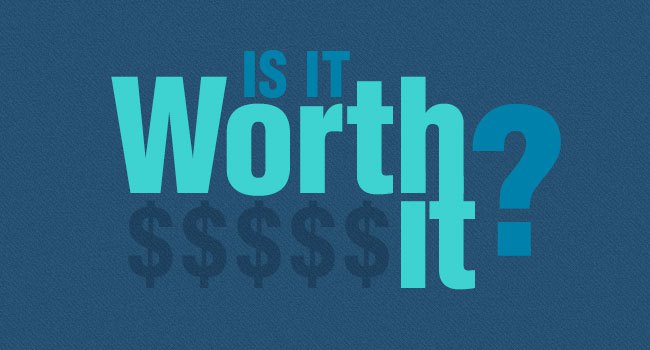The Government’s new tax changes will bring an end to the heady easy-money days of Buy-To-Let investment, so what alternative approaches could still net good returns for investors in 2016? We ask the experts how the new changes will impact property investors and how you can still make money from property in 2016 (if you still can that is!).
Henry Pryor, HenryPryor.com
Henry Pryor is a buying agent and the “BBC’s favourite property expert” having appeared regularly in print, on radio and on television.
“Talk of the demise of buy-to-let is greatly exaggerated, but the days of making money from property as easily as falling off a log are over. The truth is that we have got fat and lazy and many people have mistaken a rising market as a perpetual summer, when in truth, the property market ebbs and flows and winter follows sunshine as surely as night follows day.”
“Sure, the Government has decided that property investors are as socially acceptable as a City banker at a charity dinner, but it’s still possible to make a decent and secure return on property just as the better bankers seem to have found a way to thrive. New Right to Rent legislation adds to the burden of being a landlord but the additional cost of Stamp Duty that comes in in April (like my fees) can be off-set against future capital gains tax or even losses. I presume that most investors still intend to make a capital gain?”
“You can still make money by re-positioning property, turning it from a market that doesn’t want it to one that does. Converting pubs into homes, two flats back into one house or adding space by pushing up into the roof of digging down and opening up a basement. Adding or creating value.”
“The latest fad many of my clients are looking at is buying homes to let out through the likes of OneFineStay or AirBnB. Higher rents compensate for bigger potential voids but a savvy and switched on landlord can keep occupancy up at 80%+. Expect to see more lateral thinking as brighter investors clean up as the market exposes the amateur landlords who thought property was a free ride.”
“Property investment can be a wonderful thing but it can also be a harsh mistress and as with nature it’s ok to be the lion and it’s ok to be the gazelle. Either way, you just have to be faster than the slowest gazelle.”
Robert Jones, Property Investments UK
Robert Jones is a Manchester based property investor, mentor and Director of Property Investments UK.
“There is nothing permanent except change. This is a quote I heard a long time ago and it has stuck in my mind ever since. The property market is constantly changing and buy to let for too long has been heavily reliant solely on growth in certain key areas, where yield has been almost forgotten. If left alone, then the risk of real bubbles as seen in prime locations across the globe will become a real issue.”
“The tax changes and legislation increase I look at in a different light to most and see it as bringing many opportunities to the table. You may have to change your buy to let criteria, method of financing or target locations, but this will open up investment in properties with better yields and create more realistic long term buy to let ownership, instead of short term growth gambles.”
“In addition, competition will reduce on many property strategies as fear of change kicks in and part time investors leave the industry in many locations. These opportunities will provide a more stable platform for professional investors to thrive in, still including buy to let strategies but also development and trading strategies, anywhere you can create and add to the housing stock will be a real opportunity going forward. Bringing empty homes back to use, development and buy to let in higher yielding areas, will be core strategies for many investors in 2016 and beyond.”
Steve Bolton, Platinum Property Partners
Steve Bolton is a successful entrepreneur, best-selling published author and founder of Platinum Property Partners, a multiple award winning network of landlords.
“Of late, private landlords have been having a rough time of it and you would be forgiven for thinking that right now isn’t the best time to invest in the UK property market. The year has definitely been one of change, with many new challenges.
“As a result of the Summer 2015 Budget, I am co-leading a legal challenge against the Government and it’s reduction in mortgage interest tax relief. It’s not clear why the Government has chosen to just launch an attack on buy-to-let owner-operators with mortgages. It’s a tax from Alice in Wonderland – truly absurd and divorced from real life. Not only is this tax grab unfair, undemocratic and underhanded, but we believe that it could also be unlawful.”
“Investing in buy-to-let property has been, and will continue to be, an excellent way to generate long-term returns. It can give you an income now, boost your pension pot for the future, benefit from capital appreciation over time and provide a tangible legacy that you can leave to your loved ones.”
“The fact is that there is never a bad time to invest – provided that you undertake a sufficient amount of detailed due diligence so that you come up with an investment strategy that suits your own circumstances and goals, and one that can be stress-tested against a changing market.”
“Unfortunately, recent Government legislation could have a significant impact on the bottom line for many landlords who pay above the basic rate of income tax. This is especially true for those investing in single occupancy buy-to-lets with large mortgages and little opportunity to recoup this extra expenditure by increasing the rents they charge.”
“As a consequence, the segment of landlords most likely to be affected by the changes are ‘Mum and Dad’ landlords who invest in or inherited property, often to provide a nest egg or housing stock for their children – effectively punishing those who have worked hard to provide for their families.”
“We have already adapted our business model to minimise the impact of tax changes, and successfully so. Basically, cash flow is king. The higher the rental income of a buy-to-let property, the bigger the buffer against rising costs and the longer a portfolio can remain profitable.”
“However, there are still enormous benefits of investing in buy-to-let property despite a potential rise in costs and tax bills on the horizon.”
Daniel Peacock, Property Secrets
Daniel is Director and Editor of the well-known property investment website www.propertysecrets.net supplying advice, opinion, tools and off market property deals to investors for almost 15 years.
Stamp duty increases
“This kicks in from April 2016 and means buy to let investors will now pay an additional 3% stamp duty on any properties, from £40,000 upwards, compared to first time buyers/owner occupiers. This is an understandable government scheme to try to reduce the demand from buy to let investors and increase the chances of homeowners being able to buy.”
“Personally, I think reducing red tape and making it easier for developers to develop would be more beneficial than trying to de-incentivise private landlords, who provide an essential role in UK housing. However, with the government under pressure from all sides, this will help appease groups like Shelter and Generation Rent.”
Will it make much difference overall to prices?
“With such low supply, and high demand it is hard to imagine prices will see much impact – but the percentages of owner-occupiers should increase slightly compared to buy to let investors.”
“However with attractive borrowing rates, and projected capital growth of 5-8% next year along with increasing yields, I don’t see many buy to let investors not continuing to invest.”
Vanessa Warwick, Property Tribes
Successful landlord and Co-founder of PropertyTribes.com, an online forum providing help, advice and resources for landlords of all types and experience.
“Yes, investing in property can still be profitable in 2016! However, the days of “free and easy” finance and highly leveraged landlords are most definitely over.”
“Landlords will have to take a more professional approach, seek personalised financial and tax advice as to how best structure their property holdings, and take a long term view – 15 to 20 years.”
“Due to contraction of social housing and the private rented sector, rents are likely to increase. There will also be opportunities for capital growth due to the supply/demand imbalance becoming more extreme.”
“The main strategies I see as being successful are landlords who buy for cash and landlords who invest in U.K. holiday lets, as these are not affected by the new Clause 24 tax changes.”
“Residential property investment in England and Wales has delivered average annual total returns of 9.34% over the last 20 years, far outperforming other asset classes. People are always going to need a roof over their head and somewhere to live will never go out of fashion – its a necessity for every single person. Private landlords still have an important role to play in housing the nation, and those who educate themselves and treat it as a business will survive and prosper.”
See Vanessa’s article:
9 irrefutable reasons why property remains a viable investment
Stuart Law, Assetz For Investors
Stuart Law is Chief Executive and founder of Assetz PLC, a group of property and financial services companies. In 2012 Stuart was named one of the most influential figures in property in the UK by The Telegraph.
The Conservative government has made it clear that buy-to-let investors are no longer welcome in London. The implementation of a 3% additional stamp duty levy on second homes and investment property, combined with property prices in the Capital being at an all-time high, are big deterrents.
So where does Buy-to-Let still pay dividends, how do you mitigate the latest tax on Buy-to-Let mortgage interest and the new 3% stamp duty and which areas offer the best opportunities for realising a good return on investment? Stuart Law of Assetz For Investors advises landlords to look North, where lower acquisition prices, better potential for capital growth and higher yields can all be found.
“The impact of the new tax on mortgage interest is very pronounced in the overpriced South. An investor with £200,000 to invest in the capital would need a £400,000 mortgage to buy a typical £600,000 property. If the gross yield was a typical 4% and the mortgage interest rate was 4% and the investor was a higher rate tax payer, they would actually have to pay £4,400 per annum to own the property and live in hope of further price growth to avoid losing money year after year.”
“If the same investor bought two £100,000 properties in the North, for cash, at a typical 7% gross yield then the investor would receive £9,100 per annum on their cash, before tax, and still benefit from full house price growth in that location.”
“For investors seeking income, rather than speculators hoping for house price growth, perhaps now is the time to heed the Government’s messages about Buy-to-Let, and investing in London generally, and look to the North instead.”
“For people based in the South, investing on your door-step should not be the first option. As prospective home owners are increasingly priced out of the Capital, more people based in the South will be heading from here to build their livelihoods in the emerging Northern Powerhouses. The balance of power is now starting to lean towards the North.”
Dale Anderson, Experience Invest
With nearly 10 years of experience working in the property investment industry, Dale Anderson knows more about the UK’s property market than most people. Dale regularly provides expert comment on property and has been interviewed by CNN and The Telegraph.
“We have experienced a slight rush of sales from clients who wish to invest in buy-to-let property before the new stamp duty rates are introduced in April. Time will tell what effect these changes will have on the market as a whole, however, I believe that stamp duty tax increases will have a greater impact on properties at the higher end of the market.”
“We may see a rise in demand for alternative opportunities such as student accommodation which has a lower entry level. Investors may seek opportunities towards the bottom of the scale to avoid facing a higher tax bill. We also expect that investors will shift their attention to the north – where property prices are much lower than London and the south east of England.”
“I would also expect that renters will also feel the pinch. In light of tax relief changes, many landlords will be forced to increase their rents.”
Nelly Berova, Property Division
Nelly Berova is a London-based landlord, property investor and expert contributor to both Property Division and Addicted To Property.
“It has been claimed that the 3% stamp duty premium is likely to lock out new entrants to the buy-to-let market and pave the way for a transfer of housing stock from small investors to larger corporations. But that is unlikely to be the case in London and South-East England where many landlords regard their buy-to-let properties as long-term investments. The stamp duty premium will add £12,000 to the purchase cost of a £400,000 buy-to-let property, which can be recouped over the life of the investment.”
“There could well be a short-term surge in sales to property investors before the new stamp duty rates come into force on 1st April. Beyond that, investors in London will view the higher stamp duty rate as another fixed cost.”
“Of greater concern for landlords is the government’s threat to impose a much heavier tax on their profits and a rise in capital gains tax if they choose to dispose of a buy-to-let property.”
“Another less trumpeted change will see the maximum tax relief available to landlords drop from 45% to 20%. This means many small investors with outstanding mortgages on the homes they rent out will see their profits collapse.”
“The best way landlords can maintain their income from property is to keep the homes they let out in tip-top condition. Tenants have ever-increasing demands, but many are prepared to pay a premium for properties that meet their high expectations.”
“Letting property is a business, so all private landlords should also seek the advice of an accountant, who may be able to reduce some of their tax liabilities.”
Nick Marr, TheHouseShop.com
Nick Marr is an online property entrepreneur with over 15 years experience in the industry. He is the co-founder of TheHouseShop.com and has spoken to countless private landlords and sellers during his career, giving him unique insight into the market.
“I can fully understand the Government’s thinking about increasing taxes to landlords – it will dampen demand and reduce the amount of people looking to make property ownership a business. However, I doubt it will make a significant difference to demand and could backfire as landlords pass on the extra costs to their tenants.”
“The changes that are coming may affect the less motivated investors, however the fact remains that property still provides outstanding returns on investment.”
“Investors will need to work harder with their homes: extending, multiplying and finding ways to ensure that the property maximises its potential.”
“Location is now even more important and the investor that can identify the next growth area will make profit on the purchase. Doing work to improve a run down property, for example, may become a necessary part of the new landlords armoury to offset the new taxes.”
UPDATE: Seeing as we always like to present a balanced view of the argument, we have updated our expert roundup with an alternative view of the market from experienced property investor and landlord, Angela Bryant – see what she has to say below.
Angela Bryant, The Complete Guide to Property Investing Success
Angela has been investing in property for over 20 years, since 1995, with her husband Dave. They have grown a portfolio of 100 properties, but are now selling some of these due to the Government’s planned tax changes.
“Well I wouldn’t exactly call that The Truth, The Whole Truth and Nothing But the Truth! So help me god!!”
“Perhaps we ought to mention that some highly leveraged landlords are facing bankruptcy with the government’s tax changes and there’s nothing they can do about it.”
“We could also mention that some higher rate tax payer landlords are being forced to sell properties due to the government’s tax changes and in the process, making the poorest members of society homeless. People who have no hope of ever buying; and with a shrinking rental market – because many landlords ARE selling – they are ending up increasingly in hostels and now that those are full, in B&Bs.”
“Should we mention that many landlords are being forced to jump through many ridiculous hoops and go to a lot of unnecessary expense in the potentially vein hope of sheltering what properties we can in limited companies (only viable for low value, no capital gains properties)?”
“We should also note that even if the figures appear to work for you now using one of the buy to let tax change calculators – you need to consider what happens when interest rates rise with the new tax changes. Survive that!”
“And none of us have mentioned that since we now know the government has got it in for small landlords, who knows what bullets they’ll fire at us next! Easily, they could withdraw any allowance of mortgage interest as an expense. They also seem to have an unlimited ability to make up more anti-landlord regulations that make our lives difficult.”
“Yes folks, buy to let is wonderful in 2016. Come on in.. if you want to buy property – the more aware landlords are selling in droves!”
“I do understand that most commentators want to be positive and I like to think I’m usually a positive person too. It does worry me though when as a collective, us landlords appear publicly to give out messages of almost defiant positivity in light of the battering by government that we’re receiving.”
“I feel that sometimes expressing our despair, anger and disbelief at what a mess this government are trying to make of the PRS is no bad thing. We need to get the message across that this is hurting, not only us but tenants, not to mention other trades and professionals that support the PRS. Please stop bashing landlords, George Osborne!! Because unless as I hope to God, the planned tax changes get repealed, I really believe this doesn’t end well not just for us, but for society as a whole.”
Looking for your next investment property? Find thousands of unique homes for sale on TheHouseShop.com that you won’t find anywhere else!
Right To Rent begins in just under 2 weeks! Are you prepared?
Check out our handy Right To Rent Guide for landlords
[vc_row][vc_column][vc_separator][vc_column_text]Find Properties for Sale in London and the Surrounding Area:
[/vc_column_text][vc_row_inner][vc_column_inner width=”1/3″][vc_column_text]- Property for Sale Barnet
- Property for Sale Bexley
- Property for Sale Brent
- Property for Sale Bromley
- Property for Sale Camden
- Property for Sale Chelsea
- Property for Sale Croydon
- Property for Sale Ealing
- Property for Sale Enfield
- Property for Sale Fulham
- Property for Sale Greenwich
- Property for Sale Hackney
-
- Property for Sale Hammersmith
- Property for Sale Haringey
- Property for Sale Harrow
- Property for Sale Havering
- Property for Sale Hillingdon
- Property for Sale Hounslow
- Property for Sale Islington
- Property for Sale Kensington
- Property for Sale Kingston
- Property for Sale Lambeth
- Property for Sale Lewisham
- Property for Sale London














 POSTED BY
POSTED BY 


Angela Bryant has nailed it!
The only one seeing a naked Emperor!
It’s a good thing we decided to include Angela’s alternative opinion then! Clearly quite a few people agree with her